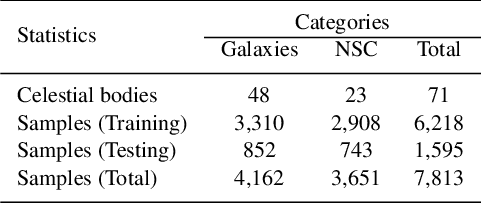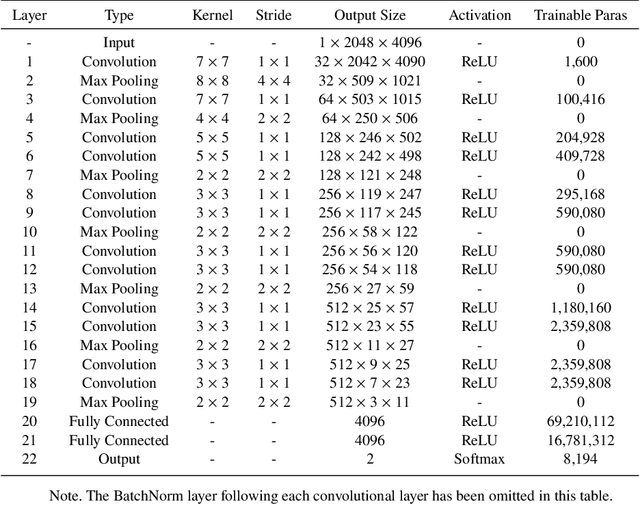Yuquan Zhang
Scientific Preparation for CSST: Classification of Galaxy and Nebula/Star Cluster Based on Deep Learning
Dec 08, 2023



Abstract:The Chinese Space Station Telescope (abbreviated as CSST) is a future advanced space telescope. Real-time identification of galaxy and nebula/star cluster (abbreviated as NSC) images is of great value during CSST survey. While recent research on celestial object recognition has progressed, the rapid and efficient identification of high-resolution local celestial images remains challenging. In this study, we conducted galaxy and NSC image classification research using deep learning methods based on data from the Hubble Space Telescope. We built a Local Celestial Image Dataset and designed a deep learning model named HR-CelestialNet for classifying images of the galaxy and NSC. HR-CelestialNet achieved an accuracy of 89.09% on the testing set, outperforming models such as AlexNet, VGGNet and ResNet, while demonstrating faster recognition speeds. Furthermore, we investigated the factors influencing CSST image quality and evaluated the generalization ability of HR-CelestialNet on the blurry image dataset, demonstrating its robustness to low image quality. The proposed method can enable real-time identification of celestial images during CSST survey mission.
FedPDC:Federated Learning for Public Dataset Correction
Feb 24, 2023Abstract:As people pay more and more attention to privacy protection, Federated Learning (FL), as a promising distributed machine learning paradigm, is receiving more and more attention. However, due to the biased distribution of data on devices in real life, federated learning has lower classification accuracy than traditional machine learning in Non-IID scenarios. Although there are many optimization algorithms, the local model aggregation in the parameter server is still relatively traditional. In this paper, a new algorithm FedPDC is proposed to optimize the aggregation mode of local models and the loss function of local training by using the shared data sets in some industries. In many benchmark experiments, FedPDC can effectively improve the accuracy of the global model in the case of extremely unbalanced data distribution, while ensuring the privacy of the client data. At the same time, the accuracy improvement of FedPDC does not bring additional communication costs.
 Add to Chrome
Add to Chrome Add to Firefox
Add to Firefox Add to Edge
Add to Edge